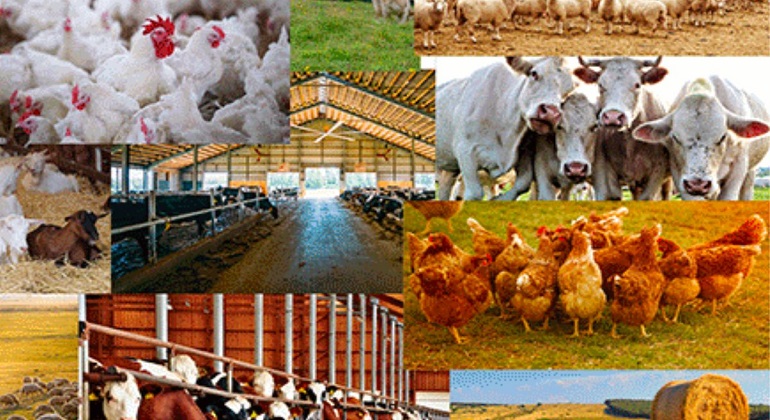In the heart of Nigeria, Kwara State stands as a dynamic player in the livestock value chain, harnessing the rich agricultural landscape to contribute significantly to the state’s economy. The livestock sector in Kwara has evolved into a multifaceted system, showcasing the potential for growth, sustainability, and economic development.
Livestock Farming
At the nucleus of the livestock value chain in Kwara is farming. The state’s diverse geography and favorable climatic conditions make it conducive for various livestock activities. Farmers across the state engage in the rearing of cattle, sheep, goats, and poultry, creating a robust foundation for the entire value chain.
Challenges in Livestock Farming
Despite its promise, the livestock sector faces challenges such as disease outbreaks, inadequate veterinary services, and limited access to modern farming technologies. Farmers in Kwara have demonstrated resilience by adopting best practices and seeking innovative solutions to overcome these challenges.
Animal Husbandry Practices
Livestock farmers in Kwara employ modern animal husbandry practices to enhance the health and productivity of their herds. This includes proper nutrition, vaccination programs, and improved breeding techniques to ensure the well-being of the livestock.
Processing and Value Addition
The livestock value chain in Kwara extends beyond primary production, with a growing focus on processing and value addition. Entrepreneurs have invested in modern abattoirs, poultry processing units, and dairy facilities, adding value to the raw products and meeting the diverse demands of consumers.
Market Access and Distribution
Access to markets is critical for the sustainability of the livestock sector. Kwara’s strategic location and well-connected transportation networks facilitate the distribution of livestock products to local markets and neighboring states. Strengthening market linkages and exploring export opportunities can further elevate the economic impact of the livestock value chain.
Government Interventions
Recognizing the significance of the livestock value chain, the Kwara State government has implemented initiatives to support farmers and processors. This includes providing veterinary services, promoting research and development, and creating an enabling environment for private sector investments.
Capacity Building and Training
To ensure the sustainable growth of the livestock value chain, capacity building and training programs are crucial. Farmers and agribusinesses in Kwara receive training on modern livestock management practices, disease control, and value addition, enhancing their skills and productivity.
Quality Control and Certification
Maintaining high-quality standards is paramount for livestock products. In collaboration with relevant authorities, Kwara State emphasizes the importance of adhering to quality control measures and obtaining necessary certifications, ensuring the safety and reliability of its livestock products.
Technology Adoption
Embracing modern technologies is instrumental in enhancing productivity and efficiency in the livestock sector. Kwara farmers are increasingly adopting technologies such as precision farming, digital record-keeping, and mobile veterinary services to optimize their operations.
The Way Forward
To unlock the full potential of the livestock value chain in Kwara, a comprehensive approach is essential. This includes continued investment in research and technology, infrastructure development, and supportive policies. Collaboration between the government, private sector, and local communities is pivotal for overcoming challenges and ensuring sustained growth in the livestock industry.
In conclusion, Kwara State’s livestock value chain represents a thriving and evolving sector with immense potential. By addressing challenges, fostering innovation, and promoting value addition, Kwara is well-positioned to continue making significant contributions to Nigeria’s agricultural and economic prosperity through its vibrant livestock industry.

